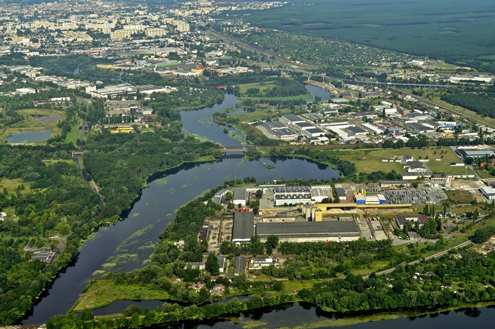Gradient scientists and engineers assist our clients with developing cost-effective, risk-based remedial strategies. We have developed and reviewed remediation strategies for sites around the world, targeting groundwater, soils, and sediments. Our ability to understand chemical behavior in the environment, model contaminant transport, and evaluate risks allows us to effectively compare remedial strategies and select the optimal approach. Our technical skills include:

Revision of Polychlorinated Biphenyl (PCB) Soil Cleanup Levels
Gradient developed revised polychlorinated biphenyl (PCB) cleanup levels for a network of 40 natural gas transmission pipeline compressor stations. Using our pioneering cleanup level averaging approach, we provided a reinterpretation of the existing Administrative Order on Consent that was approved by US EPA regional risk science experts. The revised cleanup level requirements were demonstrated to be health protective.
Source Remedy Shutdown Evaluation
At a former liquid waste disposal site, Gradient conducted fate and transport modeling to evaluate the effectiveness of continued operation of a dual-phase extraction remedy. We developed a groundwater transport model to evaluate the effect of source remedy shutdown on the downgradient groundwater plume, with results indicating that the continued operation of the source remedy offered limited benefit.
Development of a Risk-Based Groundwater Remedial Strategy
In support of a South American facility closure, Gradient designed a risk-based remedial strategy for a former pesticide formulation facility. We developed a groundwater transport model to predict volatile organic compound (VOC) concentrations at off-site wells and assessed human-health risks related to groundwater contamination. Based on these results, we developed site-specific, risk-based cleanup goals for both soil and groundwater.
National Contingency Plan Compliance and Sediment Remediation Approach
Gradient prepared comments on US EPA’s proposed remedy for a Superfund site, which included sediment impacted by non-aqueous phase liquid (NAPL) and polycyclic aromatic hydrocarbon (PAH) from both a historical wood treatment plant and manufactured gas plant (MGP) operation. We evaluated the basis for each major remedy element in the context of consistency with the National Contingency Plan (NCP) and determined which proposed alternatives achieved NCP compliance.
Brownfield Remedy Negotiations at a Former Manufactured Gas Plant Site
Gradient developed a remedial strategy at a former manufactured gas plant (MGP) undergoing redevelopment. We used a solute transport model to evaluate remedial alternatives and predict levels of contaminants at a nearby lake. The final remedy allowed for development of a shopping mall under a Brownfields program, including a parking area that served as a soil cap.
Risk-Based Remediation at Carbon Black Manufacturing Facility
Gradient developed risk-based cleanup goals and a remedial strategy that relied on a real-time, field-based decision framework to address petroleum-feedstock-impacted soil and groundwater at a former manufacturing facility in India. Our strategy led to the successful implementation of a health-protective remedy, timely site closure, and sale of the property.